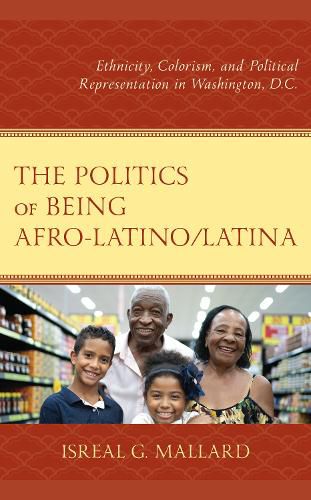Readings Newsletter
Become a Readings Member to make your shopping experience even easier.
Sign in or sign up for free!
You’re not far away from qualifying for FREE standard shipping within Australia
You’ve qualified for FREE standard shipping within Australia
The cart is loading…






Historically, Afro-Latinos/as have been underrepresented in political offices in the District of Columbia. Isreal G. Mallard explores the social/racial factors that influence the political attitudes of Afro-Latino/a voters, the Latino voting community at-large, and political representatives. Also, the author examines factors such as ethnicity and "pigmentocracy" (skin color) which play a role in electing an Afro-Latino/a to political office in Washington, D.C. Furthermore, he provides answers to address the social/racial factors that influence the electability of light-skin and dark-skin, self-identified Afro-Latinos/as running for political office in Washington, D.C. In addition, he discusses how social/racial factors influence the pathway to political office for self-identified Afro-Latinos/as. He uses a qualitative methodological approach which includes interview participants to provide answers to this study.
$9.00 standard shipping within Australia
FREE standard shipping within Australia for orders over $100.00
Express & International shipping calculated at checkout
Historically, Afro-Latinos/as have been underrepresented in political offices in the District of Columbia. Isreal G. Mallard explores the social/racial factors that influence the political attitudes of Afro-Latino/a voters, the Latino voting community at-large, and political representatives. Also, the author examines factors such as ethnicity and "pigmentocracy" (skin color) which play a role in electing an Afro-Latino/a to political office in Washington, D.C. Furthermore, he provides answers to address the social/racial factors that influence the electability of light-skin and dark-skin, self-identified Afro-Latinos/as running for political office in Washington, D.C. In addition, he discusses how social/racial factors influence the pathway to political office for self-identified Afro-Latinos/as. He uses a qualitative methodological approach which includes interview participants to provide answers to this study.